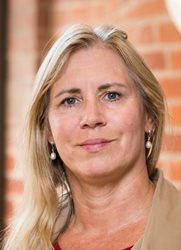 Councilor candidate
Councilor candidate
Elizabeth A. Winzeler, PhD
University of California San Diego, California, U.S.
Personal Statement
I am interested in developing innovative ways to treat tropical diseases with a long-term goal of eliminating their causes through basic and applied. I believe that all lives matter and that more effort should be focused on improving the health and hygiene of people living in areas of the world where diseases such as malaria, Chagas’ disease, leishmaniasis, or cryptosporidiosis are endemic.
My record will show that I have a strong record of scientific achievement. I have worked to write publications that bring attention to the field of topical medicine and have experience working with the media. I engage in and am an advocate for large-scale collaborative science. I believe that teams working together can accomplish more than a researcher or physician working in isolation. In addition, I believe that the innovative use of new technologies can lead to cost savings that allow more to be accomplished with limited funding. I have used these principles of collaborative work, rapid adoption of new technology and improvements in efficiency in my own research. For example, my team-based work to increase efficiency and reduce costs has altered the way the community now searches for new antiparasitic molecules, resulting in two first-in-class new antimalarial drug candidates into the drug development pipeline. I will continue to use the principles of teamwork, efficiency and innovation if I am elected as councilor.
In addition to maintaining an academic research laboratory at the Scripps Research Institute from 2000-12, I led a group at the Genomics Institute for the Novartis Research Foundation. This joint appointment allowed me to gain an appreciation for translational research and for how industry can be engaged in the search for new cures for neglected diseases. At the University of California, I continue to collaborate with industrial partners providing opportunity to new members into the society.
As a professor at a public university, I have mentored postdoctoral, graduate and undergraduate students. As a councilor I will foster career development and leadership potential of this next generation by organizing scientific symposia and inviting early career scientists to present. I will work to recognize excellence by identifying and nominating individuals who may be suitable recipients for the Society’s awards. My extensive network of global collaborators offers opportunities to expand ASTMH membership.
As a councilor I will work to enhance the Society’s capacity to influence key audiences. For example, I work closely with the Medicines for Malaria Venture, the Bill & Melinda Gates Foundation, and the Tres Cantos Open Lab Foundation. I will work to increase funding for global health R&D through member and Society advocacy efforts by meeting with my congressional representatives, writing letters and urging my colleagues to speak up. I believe I can be an effective advocate for increased global health basic research because I can describe how the development of innovative new therapies and diagnostics depends on basic research performed specifically on the pathogen.
Summary of Volunteer/Member Roles in ASTMH
2007
- Speaker
- Basic Science Pre-Meeting Course: Systems Biology: Approaches to Understanding Infectious Disease
2015
- Symposium Organizer
- The Plasmodium Falciparum Drug-Able Genome
2016
- Speaker
- Parasitology Pre-Meeting Course: Chemical Biology: A New Tool for Parasite Biology and Drug Development
Biographical Information
Elizabeth Ann Winzeler is a Professor at the University of California, San Diego, in the School of Medicine. She obtained her Ph.D. and performed postdoctoral work at Stanford University before moving to a joint position at the Scripps Research Institute and the Genomics Institute of the Novartis Research Foundation (GNF) in 1999. In 2012 she moved to the University of California, San Diego where she leads a group that uses systematic, data intensive methods to solve problems at the interface of host pathogen biology. She is known for her work on functional genomics, genetics and chemical biology in both malaria parasites, and Saccharomyces cerevisiae. Notably, her group developed screening methods that led to the discovery of several novel antimalarial chemotypes two of which have progressed into later stage human trials (KAE609 and KAF156) and shown efficacy in humans. She has authored more than 130 scientific publications that have been cited more than 20,000 times and collaborated with hundreds of scientists from around the globe. She has received awards from the Keck Foundation, the Ellison Medical Foundation, and the Bill & Melinda Gates Foundation. In 2014 she was awarded the ASTMH Bailey K. Ashford Medal for distinguished achievements in tropical medicine. She is a fellow of the American Society for Microbiology, and on the scientific advisory board of the Tres Cantos Open Lab Foundation.